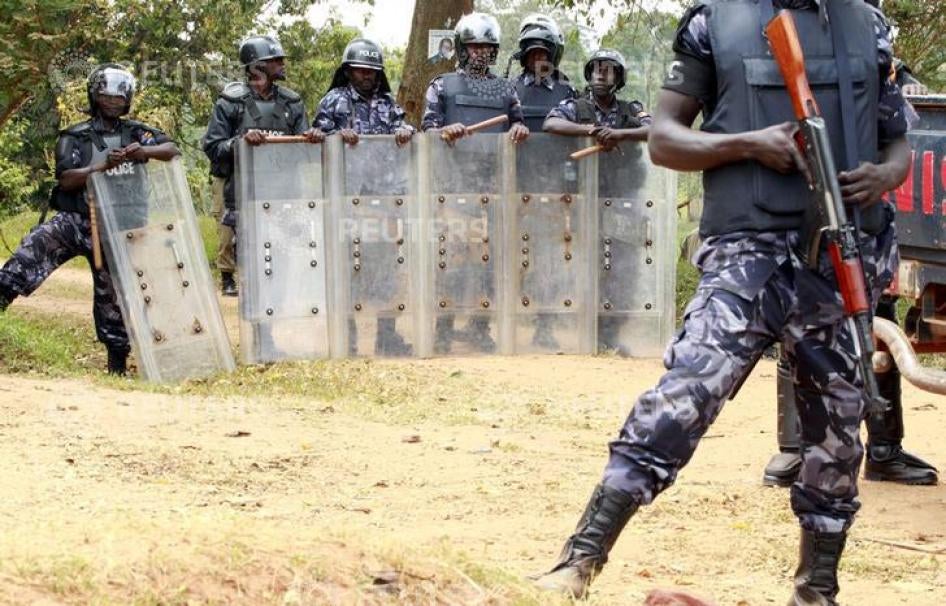Uganda’s Electoral Commission declared President Yoweri Museveni the winner on February 20, but the process is far from over. The last three weeks show that critics of President Museveni’s governance and the elections are guilty until proven innocent.
Opposition parties are struggling to respond to a poll marked by glaring problems and a blatant show of muscle by security forces on behalf of the incumbent. Former Nigerian President Olusegun Obasanjo, chairperson of the Commonwealth electoral observers, noted that, “the fusing of the state and ruling party in Uganda… had deepened, with a consequent adverse impact on political freedoms and further undermining any efforts to level the playing field for these elections.”
Using the constitutional process to challenge the election has been challenging. Opposition candidate Amama Mbabazi managed to file a petition, but alleges police have detained people with relevant evidence. On March 9, when affidavits were due, files and computers were stolen from two of Mbabazi’s lawyers’ offices, jeopardizing his petition. The lawyers and opposition leaders blame the police for the theft. Police deny involvement.
Another opposition candidate, Dr. Kizza Besigye, who according to the electoral commission won 35 percent of the vote, did not file a petition, saying that police made it almost impossible for him to do so. The police have barricaded him in his home since February 19, arresting him whenever he tries to leave on the grounds they have “intelligence” that he intends to cause unrest. So he spent most of the 10-day filing period sitting in police cells and being ferried home at nightfall. Police have on occasion denied him access to visitors, including his own lawyers, including just a few days before the filing deadline.
When I was invited to Besigye’s house to speak to him – a normal event with those whose rights have been violated – the police demanded that I first set an appointment with them to enter his home. Later, the local commander said I had to comply with the Public Order Management Act by notifying the inspector general of police in writing three days in advance – absurd for a meeting on private property with someone who hasn’t been convicted of any wrongdoing.
The police have also assaulted and arrested numerous journalists, sometimes as cameras rolled, for covering the “siege” on Besigye’s house or the opposition’s efforts to gather evidence of electoral irregularities.
The police are violating the opposition’s and the media’s basic rights protected under international law as well as under Uganda’s constitution. That those who peacefully express critical views can be arbitrarily arrested, detained, and beaten makes everyone vulnerable to abuse. Unfortunately there is no reason to believe this will end once there is a ruling on the electoral petition.








